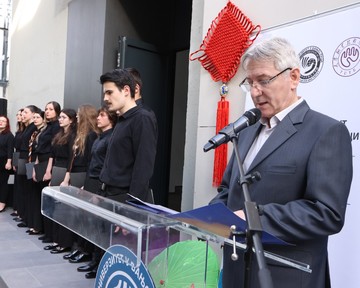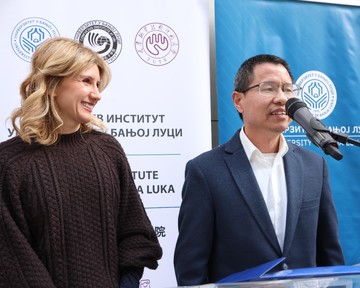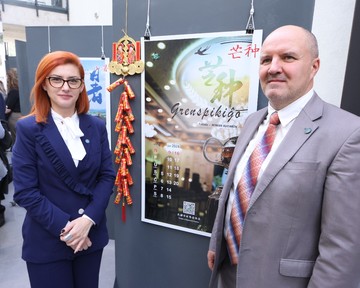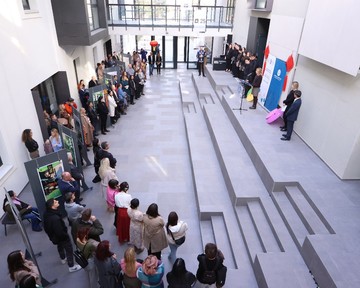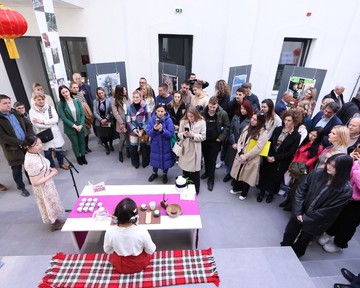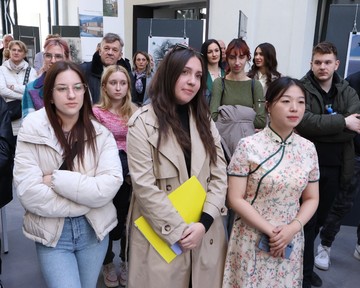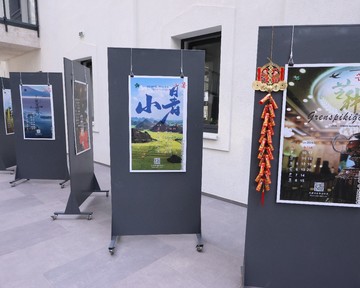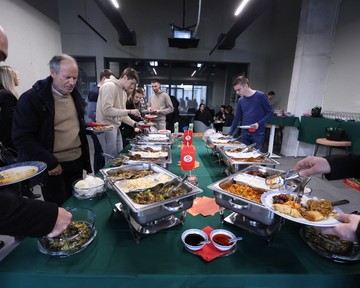Chinese Solar Calendar Introduced
NewsNews and informationThe exhibition named "Tea, Love and the World", where the Chinese solar calendar was presented, was opened on 1 February 2024 in the hall of the Faculty of Architecture, Civil Engineering and Geodesy and Faculty of Forestry of the University of Banja Luka, in the University Campus.
This exhibition, organized by the Confucius Institute in cooperation with the World Federation of Scientific Workers, will be open to the public until 10 February. This is the first in a series of events that the Confucius Institute of the University of Banja Luka organizes in honour of the Chinese New Year.
Professor Ljubiša Preradović, the creator of the exhibition, pointed out in his speech at the opening that the "Tea, Love and the World" project was jointly launched in 2019 by the Tianjin Esperanto Association, Tianjin University of Science and Technology and the Cultural Tea Base in Hangzhou as part of Zhejiang Agricultural and Forestry University, and that this year the project continued, and as part of it an exhibition dedicated to the Chinese solar calendar was organized.
The Confucius Institute Home Director Asst. Prof. Ljiljana Stević, PhD, and Chinese Director Prof. Luo Xiaoru expressed their satisfaction that together with vice-rectors, deans, professors, students and other colleagues and guests, they are celebrating the beginning of the most important Chinese holiday in this way, pointing out that they will continue organizing such and similar cultural events where the general public will have the opportunity to learn more about the Chinese culture and customs.
About the Chinese solar calendar:
The ancient Chinese divided the annual movement of the Sun into 24 periods, which refer to 24 events that mark the changes of the seasons. This unique Chinese calendar tracks and describes weather changes, cultural events and holidays, customs, and gives advice on nutrition and exercise during that period.
Each segment (period) is named by a specific "solar term". Twenty-four solar terms originate from the area of the Yellow River, which is the historical center of the greatest political, economic, cultural and agricultural activities.
Solar terms are often mentioned in children's songs, ballads and proverbs.
This calendar was registered on 30 November 2016 in the UNESCO list of intangible cultural heritage.

